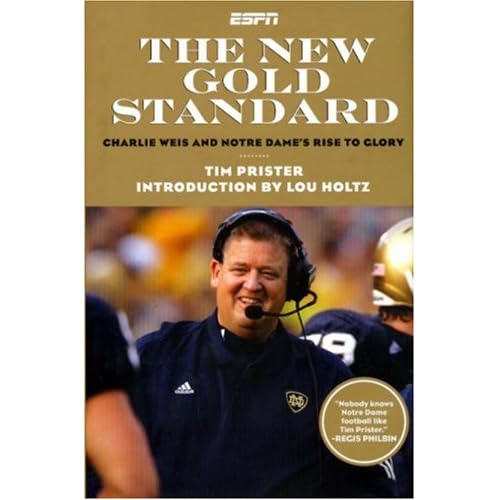In the 16th and early 17th centuries, English Puritans developed a method of Biblical and historical interpretation known as "typology." In its simplest form, typology involved the discovery of Old Testament precursors -- events, people, rituals and other elements of scripture -- that foreshadowed or prefigured similar details in the New Testament. According to Puritan interpretation, Old Testament "types" were recycled and fulfilled in the works of Christ, the somewhat awkwardly-termed "antitype." (Puritans also used Old Testament "types" to make sense of their own historical situation, as when they interpreted Native Americans as anti-types for the people of Canaan, heathens whom the Puritans -- as anti-types of Israel -- needed to drive from the new holy land.)
Reading the last few chapters of Going Rogue, we can see how Puritan theology supplies a useful tool for understanding Sarah Palin's political development, and especially her bizarre decision (on my birthday, no less) to leave the governor's office. For instance, here's a "type" from chapter 1, in which a young Palin and her friend Chuck are beleaguered by by a state trooper:
It was Christmas Day; we were out in the middle of nowhere, a couple of kids on a snowmachine up against a big dude with a gun and a badge. I couldn't help wondering about his priorities, if he really didn't have more important things to do, like catching a bad guy, or maybe helping a poor plady haul in her firewood for the night. Looking back, maybe this was my first brush with the skewed priorities of government.
And three decades later, the "anti-type" as Palin whines about the
eighteen ethics complaints filed against her since the summer of 2008:
We never imagined our critics would be so unscrupulous as to make a mockery of a serious issue like the ethics act. My state had been rocked by real ethical violations. We had lawmakers taking bribes and going to prison, the former administration's chief of staff pleading guilty to a felony, and oil service executives ready to go to the clink. But now partisan operatives were using the reformed ethics [sic] to level charges against me that were as trivial as they were absurd -- charges that were eagerly reported by the press as though they were actual news.
What a bass-ackward way of doing the people's business.
The book is loaded with similar type/anti-type pairings (e.g., the biased reporting of the local Wasilla paper prefigures the antics of Katie Couric and Andrew Sullivan; her resignation from the oil and gas board prefigures her swan dive from the governor's office; her loss in the 2002 lieutenant governor's race prefigures her loss with McCain in 2008; and so on). But since Palin's book is fundamentally a tale of martyrdom and apotheosis, she's able to ennoble her decision to quit the very job that supposedly qualified her to serve as Vice President. The dozen-plus ethics charges, the heinous fabrications of left-wing bloggers, the endless FOIA requests from reporters -- all of these are merely the stations of the cross as Sarah Palin lumbers toward Golgotha.
Financial hardship is painful but bearable. Loss of reputation I can take. But I could not and cannot tolerate watching Alaska suffer . . . .
I prayed hard because I knew that if I resigned, it might very well end any future political career.
But then I thought, This is what's wrong with our political system. Too many politicians only consider their next career move. They don't put the people they are serving first.
I don't suppose it's worth arguing about the degree of triviality bound up with these complaints (though several of them, including the ones related to the Walt Monegan fiasco as well as the complaint involving travel funds from Palin's kids, are exactly the sorts of problems that state ethics boards
should be investigating). Similarly, there's no sense in wondering if the accusations against Palin were more or less flimsy than the campaign-season accusations she herself made about Barack Obama and Bill Ayers (or the ones she explains in the book she
wanted to make about Obama and ACORN). It's probably also not worth pointing out that while Palin compares her own ethics ordeal with Netw Gingrich’s during the mid-1990s -- I wish I were making that up -- our maverick savior doesn't pause for a moment to reflect on the much costlier (and less substantiated) investigations launched into the financial transactions of the fellow who happened to occupy the White House at the same time.
At the end of the day, if Palin truly wanted to "put the people [she was] serving first," she would have been a better governor. Instead, she returned from the campaign trail with a chip on her shoulder after ticking off nearly everyone she'd need to work with in the legislature. She embarked on an ideologically-motivated,
fact-free campaign to reject federal stimulus funds, resulting in a protracted pissing match that gobbled up time better spent on serious policy questions; she spent months
fucking with the people of Juneau, nominating an array of unqualified goofballs to fill our vacant seat in the state senate; and she spent most of her time acting as if the job she
had was interfering with the job she
wanted. Ethics complaints might have caused the state a bit of hassle and expense, but they didn't stop Palin from wasting valuable time on her own petty obsessions.
As Palin herself might say, what a bass-ackward way of doing the people's business.
Read more...












